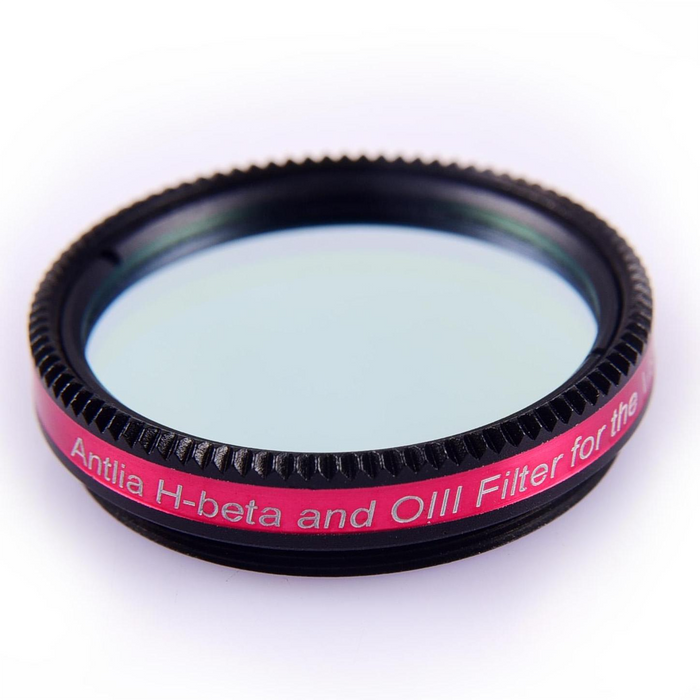
Antlia H-beta and OIII Visual Filter - 1.25"
Description
Free Shipping on most orders above $500*

Free Shipping on most orders above $500*
Antlia HB-OIII filter is engineered specifically for night visual nebulae observation at a high contrast and Deep-sky astrophotography. Its transmission is 90% or greater at critical wavelengths (OIII 500.7nm, OIII 495.9nm, and H-Beta 486.1nm). You’ll notice much higher contrast boost to observe Planetary Nebula, Supernova Remnant, Emission Nebula, Diffuse Nebula, and extremely faint nebulae by Antlia HB-OIII filter.
When it is used for Astro Deep-sky imaging, it enhances the details of the OIII and H-Beta emission lines with astronomical cameras and DSLRs.
Main Application and Performance:
Antlia HB-OIII filter was coated with almost total suppression of optical density (OD)4 on unwanted wavelength and the filter cut-off wavelength is 300-1000nm, which meets the spectral requirements of photographic cameras and further enhances the suppression of the IR region, compared with the visual filters with a cut-off depth of OD3@350-750nm, it performs better to darken the sky background and make deep-sky observation and photography of nebulae, star clusters, and galaxies more easily.
The HB-OIII filter helps faint objects become much more visible against the blackened background and produces near-photographic views of the Veil, Dumbbell, and Orion nebula, among many other objects under both light-polluted and dark skies.
Since human eyes are less sensitive at night, large aperture telescopes are recommended to gather light and funnel it into the observer's eyes.